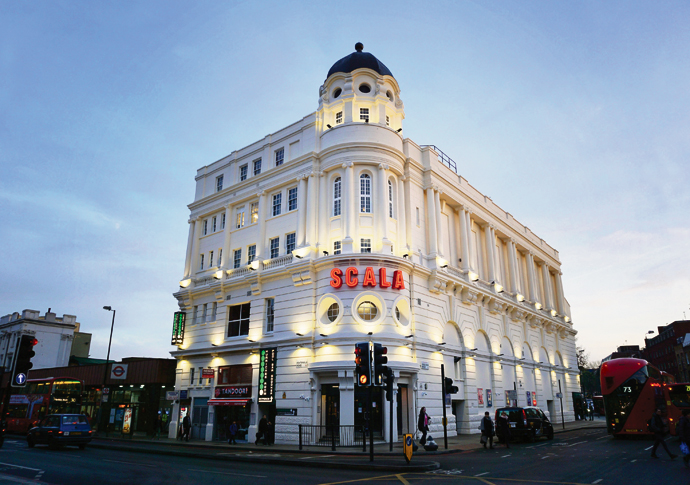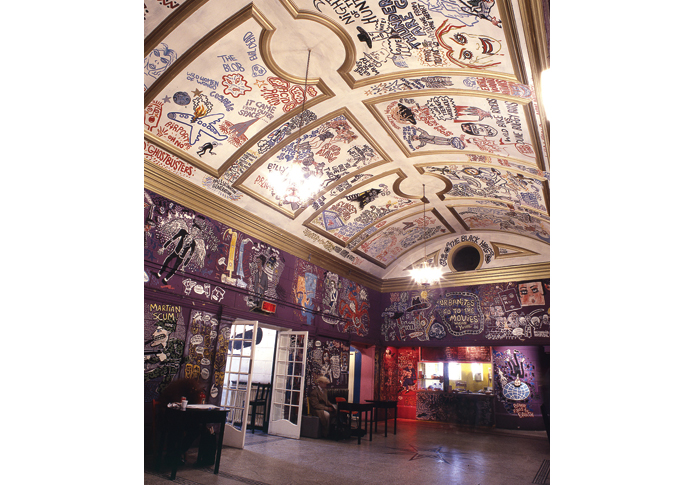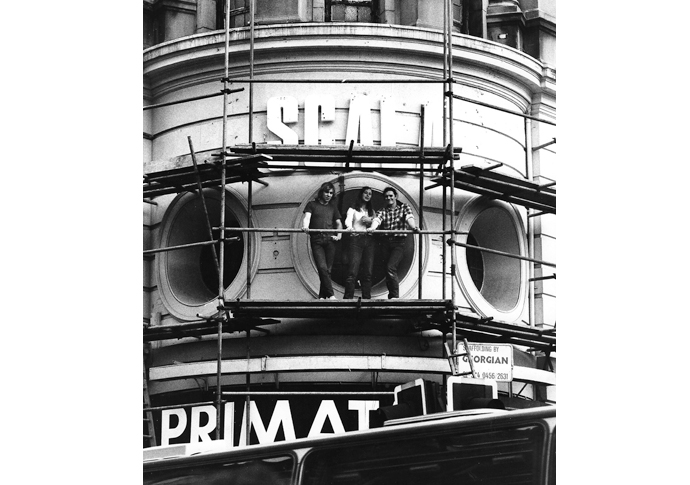Cinema paradiso
As a new film reminds us, the Scala picture house in King’s Cross attracted a particular audience... and aroma. Dan Carrier takes his seat in the stalls
Thursday, 18th January — By Dan Carrier

FROM a fleapit cinema to a temple for alternatives, the Scala cinema in King’s Cross has more than 100 years of history of entertaining people in a very, very wide number of ways.
As a new documentary by one-time Scala programmer Jane Giles reveals, the venue has done everything from projecting the kings of silent film to awed Edwardians, screening free Christmas shows for Depression children in the 1930s, capturing the glamour years of British and American film to sinking into porn for a time in the 1970s.
There was a short-lived jungle experience attraction, before rising from the discarded cardboard foliage came the Scala – a centre for counter-culture film that today has become part of the alternative London folklore.
Jane first visited the Scala in August, 1981. She recalls the experience and as her film reveals, it rings true for many who found a home at the venue.
Jane grew up in Crawley, Sussex, and as a teenager trips into London were full of excitement.
“I was working as a night cleaner at Gatwick Airport and knocking about with school friends.
“We would come up to London to explore. You’d go to the King’s Road, Camden Town – and the Scala was on the circuit of cool places to visit.
“King’s Cross was exciting, busy and dangerous. It was everything Crawley was not.
“I came to an all-nighter to watch John Carpenter horror films and was completely engrossed. They had Joy Division on in the café. I fell in love.”
The 1,500-seat picture palace began life in 1912 but the war interrupted and it did not open as a movie theatre until 1920, having been requisitioned as a munitions factory and then a labour exchange.
It was hit during the Blitz and did not re-open until 1952.
The 1970s saw a shift to showing adult films – a venture that failed. The cinema returned with the addition of late-night rock and roll – Iggy Pop and the Stooges played the venue, but it lost its licence in 1974 and lay silent for five years – to be awoken by the shrieks of apes.

The Scala’s foyer in 1986 [Rob Brown]
For a year in 1980, it became a short-lived attraction known as the Primatarium – the Scala become a rainforest with model primates popping up.
But once this was cleared away, a classic early 20th-century cinema emerged intact and the Scala moved in. It had previously been found in Fitzrovia, but its first site was lost when the block it was in was redeveloped.
“The Scala had grandeur”, adds Jane.
“It was like Vienna – it was like living in an Ultravox song.
“The building looked like an enchanted castle – a bit grubby, but with chandeliers and marble floors, a winding staircase and a deep, dark auditorium.”
Having felt the vibe of Scala life as a punter, Jane would return in a paid capacity in 1988.
“I got a job as a programmer,” she recalls.
She was working in Ipswich at a cinema, saw a small advert in The Guardian and applied.
“I was given a chance by Scala owner Stephen Woolley. He liked employing young people who were not bound by conventions and energy, ideas and were a bit reckless.”
The Scala would finally close in the early 1990s when its lease ran out. The owners had embarked on other film ventures – and had been hit with a fine after a court case saw Jane prosecuted when she screened the banned Stanley Kubrick film A Clockwork Orange without the correct permission.
In 2018, Jane told the Scala story in a book and reproduced many of the eye-catching programmes. It led on to a doc, backed by the British Film Institute.
“I knew there was archive footage, some of it rough and ready, shaky and old. But it is terrific.”
Jane had no trouble finding kindred spirits in its maverick screenings and rebellious atmosphere.
“We wanted to focus on the audience – people who were young but then went on to be creatives – musicians, writers, film makers, activists,” she adds.
The film considers why this cold and uncomfortable cinema in a part of London with a seedy reputation is remembered so fondly.

The former Primatarium becoming the Scala cinema in 1981 [David Babsky]
“There were special ingredients,” says Jane.
“It was a safe space to break rules. We showed films that it was hard to see elsewhere. London had a vibrant rep scene – there were plenty of great cinemas but the Scala turned everything up to 11.
“We showed triple bills and all-nighters. We did everything faster, hungrier, louder.”
Jane looks back at a culturally diverse and politically volatile time.
“It was a divided society. This was the Thatcher era and yuppies were out there too,” she says.
“They were the antithesis of the badge-wearing, leather jacket socialists who came to the Scala. The day of the Poll Tax riots people showed up carrying riot shields and police helmets they had managed to ‘find’ in Trafalgar Square,.
“Culture reflected and commented on the politics of the period. At times the streets were on fire and people came to the Scala to find refuge.”
And the Scala’s reflection of communities who, aware of the reactionary forces at work, made it an important place for people who could feel excluded or threatened by the mainstream.
“You could explore extreme content on screen in a safe space,” says Jane.
“There were women who would want to watch sexploitation films but they could never go to a sex cinema in Soho on their own to do so. You’d get all sorts of unwanted attention.”
Could the Scala work today, with the competition upped by the advent of streaming?
“The Scala was freezing in winter and in the summer too hot.
“It was uncomfortable and smelt strange. People can romanticise old cinemas. It is important to remember – as the film does – what made it special and what made it hard work and ugly.
“The Scala had an impact culturally, a place where things happened. You need these places where people meet, share, create – the second-hand book store, the record shop, or whatever it is – you know the feeling you get when you walk in. That is what the Scala had.”
• SCALA!!! is in cinemas now and available on BFI Player and BFI Blu-ray from January 22. A season of the Scala’s greatest hits, Scala: Sex, Drugs and Rock and Roll Cinema, runs at BFI Southbank throughout January with selected films on BFI Player. More info at bfi.org.uk